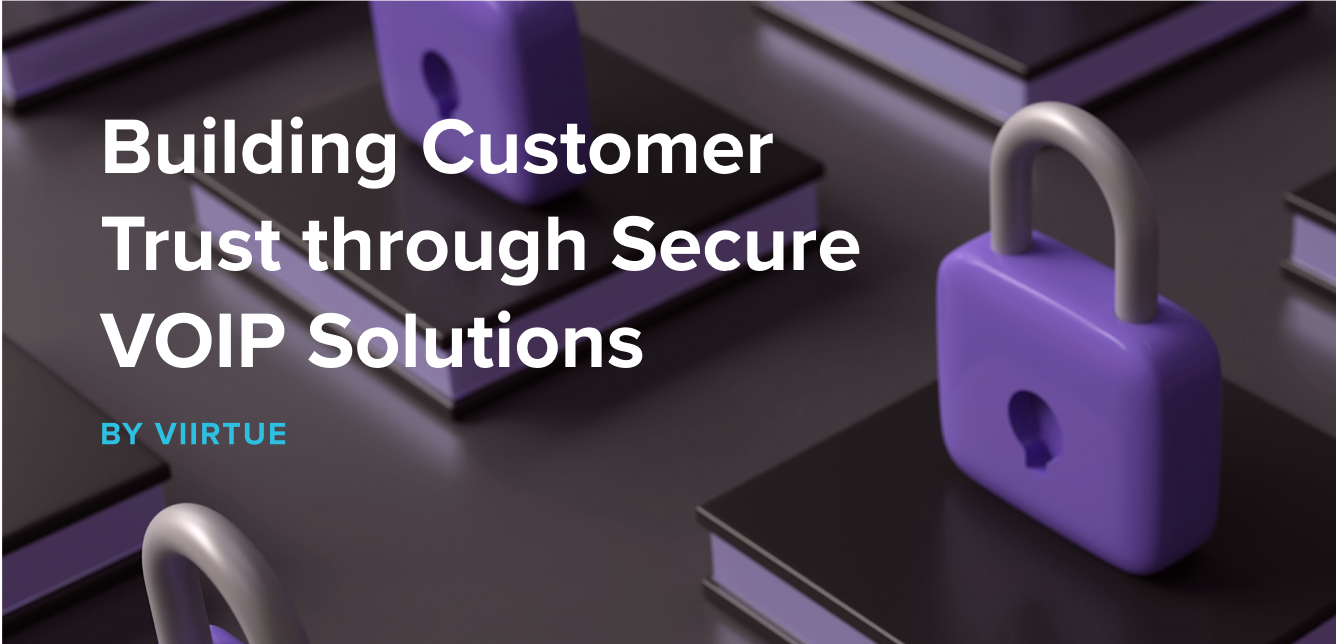In today's rapidly evolving digital landscape, communication plays a pivotal role in the success of any business. As telephony providers and managed service providers (MSPs) strive to offer seamless and cost-effective communication solutions to their clients, Voice over Internet Protocol (VoIP) has emerged as a go-to technology. However, with the increasing prevalence of cyber threats and data breaches, ensuring the security and trustworthiness of VoIP systems has become a paramount concern. In this blog, we will delve into the importance of providing secure VoIP solutions and outline essential steps for telephony providers and MSPs to guarantee the security of the VoIP systems they offer.
Importance of Secure VoIP Solutions:
-
Mitigating Cybersecurity Risks: Cyber attacks, such as eavesdropping, toll fraud, and service disruption, pose significant threats to business communication. Implementing secure VoIP solutions helps protect sensitive information, prevent unauthorized access, and minimize the risk of data breaches.
-
Ensuring Business Continuity: By leveraging cloud-based VoIP services, telephony providers and MSPs can offer their clients a robust disaster recovery strategy. Secure VoIP solutions enable seamless failover mechanisms, ensuring uninterrupted communication in the event of network failures or natural disasters.
-
Cost Savings and Scalability: Unlike traditional on-premises telephony systems, VoIP solutions offer cost-effective scalability, enabling businesses to adjust their communication needs as they grow. Secure VoIP solutions can provide the flexibility and efficiency required to scale communication infrastructure without compromising security.
Ensuring Security in VoIP Solutions:
-
Encryption for Data Privacy: Encrypted communication is a fundamental aspect of secure VoIP solutions. Implementing strong encryption protocols, such as Secure Real-time Transport Protocol (SRTP), safeguards voice traffic against eavesdropping and unauthorized access. Educate your clients about the importance of encryption in maintaining the confidentiality of their conversations.
-
Network Security: Securing the underlying network infrastructure is crucial to ensuring the integrity and availability of VoIP services. Encourage your partners and MSPs to adopt industry best practices, including implementing firewalls, intrusion detection systems (IDS), and virtual private networks (VPNs) to protect against network-based attacks.
-
User Authentication and Access Control: Implementing strong authentication mechanisms, such as multi-factor authentication (MFA) and strong passwords, prevents unauthorized access to VoIP systems. Additionally, employing access control policies that restrict privileges based on user roles and permissions helps mitigate internal security risks.
-
Regular Updates and Patch Management: Telephony providers and MSPs should emphasize the importance of keeping VoIP systems up to date with the latest security patches and firmware updates. Outdated software and hardware can expose vulnerabilities that cybercriminals can exploit. Regularly monitoring and applying security updates helps maintain a secure VoIP environment.
In the era of digital transformation, providing secure VoIP solutions is crucial for telephony providers and MSPs to build trust with their clients. By prioritizing data privacy, network security, user authentication, and regular updates, you can ensure that the VoIP systems you offer are resilient against cyber threats. Educating yourself and staying informed about the latest best practices in VoIP security will enable you to deliver reliable, scalable, and secure communication services to businesses of all sizes. By building customer trust through secure VoIP solutions, you not only protect your clients' sensitive data but also position yourself as a reliable and reputable provider in the competitive market. Stay updated, follow industry best practices, and partner with reliable technology vendors to offer VoIP systems that prioritize security without compromising on functionality.

